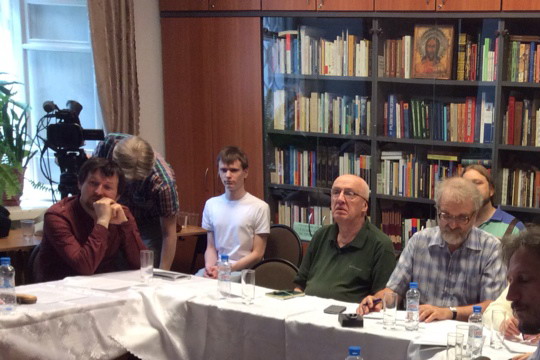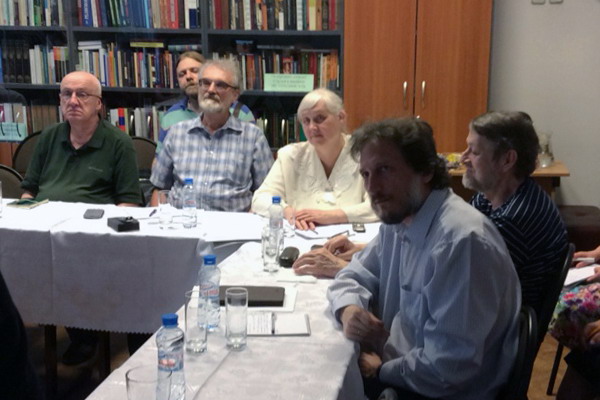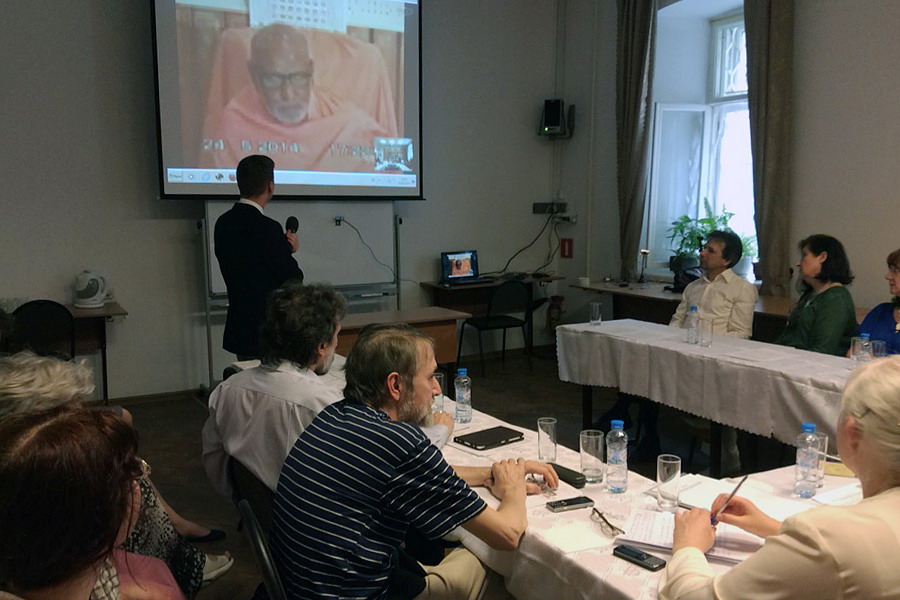Philosophy of Advaita Vedanta and Interfaith Dialogue

Swami Padmanabhananda outlined the preconditions for interfaith dialogue and cooperation in the modern world. He also presented some aspects of Advaita Vedanta that address dialogue between religions and perception of Christian dogma. The General Secretary of the Divine Life Society pointed out that he approached such dialogue as a philosophical rather than a religious practice.
Advaita Vedanta is one of the major philosophical systems (darshans) of Hinduism. It acknowledges the authority of Vedantic texts, the exclusive role of Brahmins in religious life and the primary importance of respecting the Dharma (proper behaviour, social norms and religious rules). The main subject matter of Advaita Vedanta is addressed in the teaching about the supreme spiritual being (Brahman), humanity and the world. Brahman is the ultimate, authentic reality that can be seen and perceived only by a person whose consciousness has reached its full potential. According to this philosophical concept, all other people live under the illusion that the world is made up of numerous subjects and objects and cannot be viewed as absolute unity and oneness of Brahman.
According to the General Secretary of The Divine Life Society, the surge in interest towards Eastern mysticism in 20th century Europe was linked to young people’s disappointment with traditional religions after the Second World War. In his view, the idea of interfaith dialogue emerged in response to the need for peaceful coexistence, felt by the modern society. ‘In India, such dialogue is a social necessity: there is a need to reconcile different religions as joint effort is required to interest young people in religion and philosophy,’ said Swami Padmanabhananda. ‘We are prepared to publish various sacred books, including the Bible, and to reflect on them together’.
Following the presentation, he answered questions from roundtable participants. ‘I was happy to meet and talk with scientists from the country of Leo Tolstoy. I am a great admirer of his talent,’ remarked the guest towards the end of his speech.
Participants included Professor Sergey Serebryany, Doctor of Philosophy, Director of the Meletinsky Institute for Advanced Humanities Research at the Russian State University for the Humanities; Alexey Zhuravsky, PhD in History, Chief Research Officer at the Institute of Oriental Cultures and Antiquity at the Russian State University for the Humanities, Senior Lecturer at St Philaret’s Institute; Andrey Ignatiyev, PhD in Philosophy, Senior Lecturer at the Centre for Religious Studies at the Russian State University for the Humanities; Ivan Negreyev, Head of the Department of Religious Studies at the Russian Orthodox University; Margarita Shilkina, PhD in Philosophy, Dean of the Faculty of Religious Studies at St Philaret’s Institute, and others.


